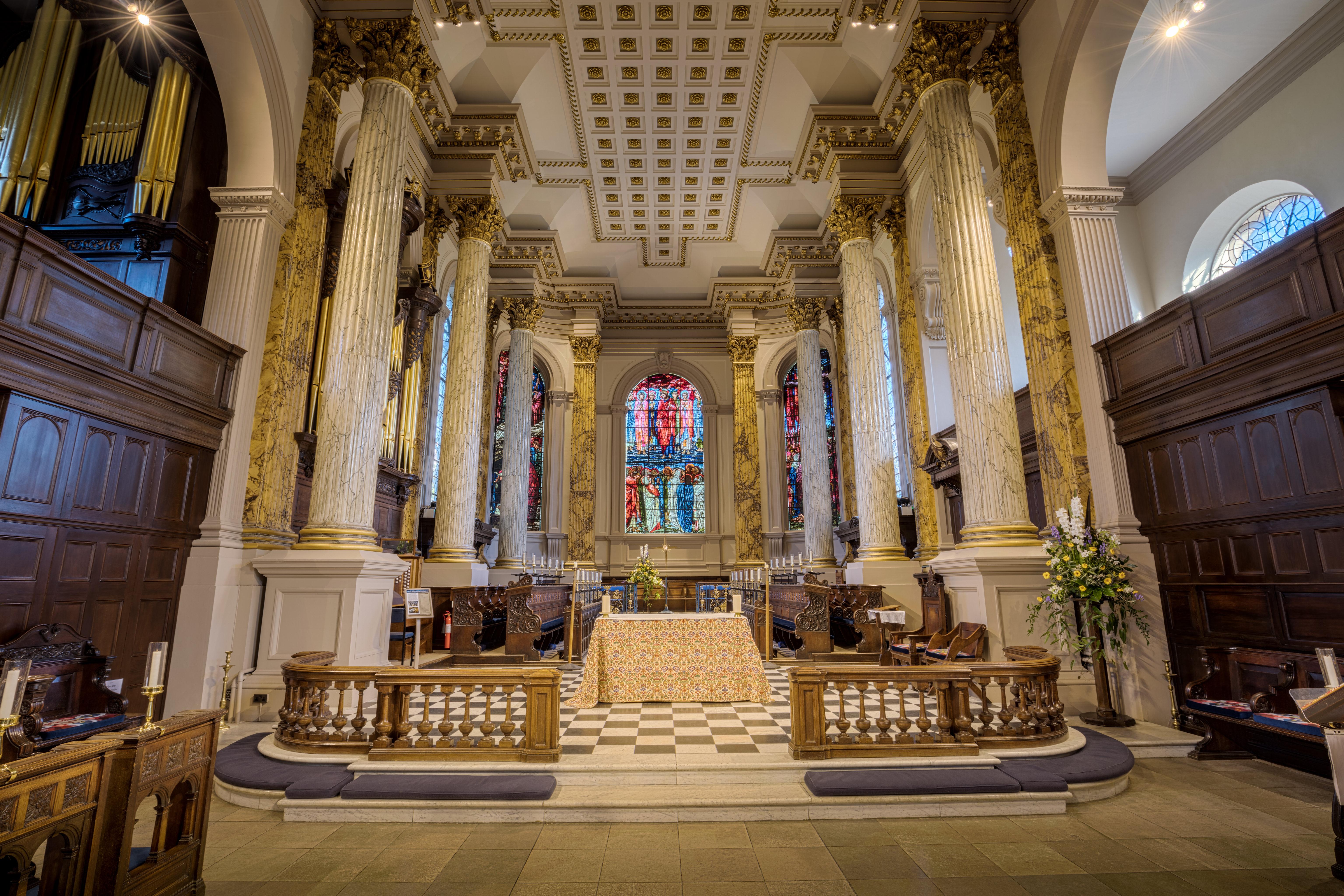San Steffan
Hen Faesyfed, Powys
Er iddi gael ei llosgi yn ystod Gwrthryfel Glyndŵr yn 1401, mae gan Eglwys Sant Steffan hanes cystal ag unrhyw gastell, gyda chroglen ganoloesol brin ac organ a all fod yr hynaf yn y DU.

The church of St Philip was built for the growing town of Birmingham in 1715 and has a stunning set of stained glass windows by Birmingham born artist, Edward Burne-Jones.
Birmingham, West Midlands
In 1660 the population of Birmingham was around 6000 people and by 1732 it was estimated to have risen to 15,000. The rapid growth of the town meant the existing parish church of St Martins was no longer adequate to service the population and a new parish church was required.
It was built on higher land given by Elizabeth Phillips. Commissioners, appointed by Bishop Hough of Lichfield, oversaw the design and execution of the church. Unusually as a compliment to the family who gave the land the church was named St Philips. The parish church had a growing and affluent congregation and in 1833 a daughter church called Christchurch was opened.
As a result of the changing nature of liturgy where there was more focus on music, symbolism and the Eucharist, the chancel was extended. The architect, JA Chatwin included new choir stalls, six large columns, a new space for the organ and large windows specifically for grand stained glass designs. The cathedral is home to a remarkable set of stained-glass windows designed by Birmingham born pre-Raphaelite artist Sir Edward Burne-Jones and manufactured by the firm of William Morris & Co.
St Philip's remained a church until 1905 when the new Diocese of Birmingham was created with Charles Gore as the first Bishop. Rather than fund a new cathedral building Bishop Gore decided to use an existing church as the cathedral and seat of the Bishop. As a Christian Socialist Gore was acutely aware of the poverty and social problems facing many ordinary citizens. It was at this time that a Bishop’s throne and canon’s stalls were installed as well as electric lighting.
During the Second World War the windows were removed for safe keeping courtesy of the Civic Society. The foresight was remarkable as the cathedral suffered considerable damage caused by an incendiary bomb dropped in October 1940. However by 1948 the building had been restored and rededicated.
In the 1980's the altar was re-ordered and an underground meeting room and song school installed in the crypt. In 2000 the churchyard was renovated with new railings and paving and in 2014/15 stone repairs, new lighting and interior paintwork was completed.
Hen Faesyfed, Powys
Er iddi gael ei llosgi yn ystod Gwrthryfel Glyndŵr yn 1401, mae gan Eglwys Sant Steffan hanes cystal ag unrhyw gastell, gyda chroglen ganoloesol brin ac organ a all fod yr hynaf yn y DU.
Yr Orsedd, Clwyd
Adeiladwyd yr eglwys gyntaf ar y safle hwn yn 1841, ond fe’i difrodwyd yn ddifrifol gan dân. Yn ôl yr hanes, ym mis Mai 1891, cynhaliodd y Ficer ‘briodas yn yr adfeilion’.
Capel y Ffin, Powys
Lleolir eglwys Sant Mair, Capel y Ffin yn nyffryn cudd yr afon Honddu, gyda’r Mynyddoedd Du i’r gorllewin iddi a Chlawdd Offa i’r dwyrain. Mae’n fan lle mae celfyddyd a thirwedd yn ymdoddi i’w gilydd – ac nid yw’n syndod felly iddi ddenu arlunwyr a beirdd am ganrifoedd.